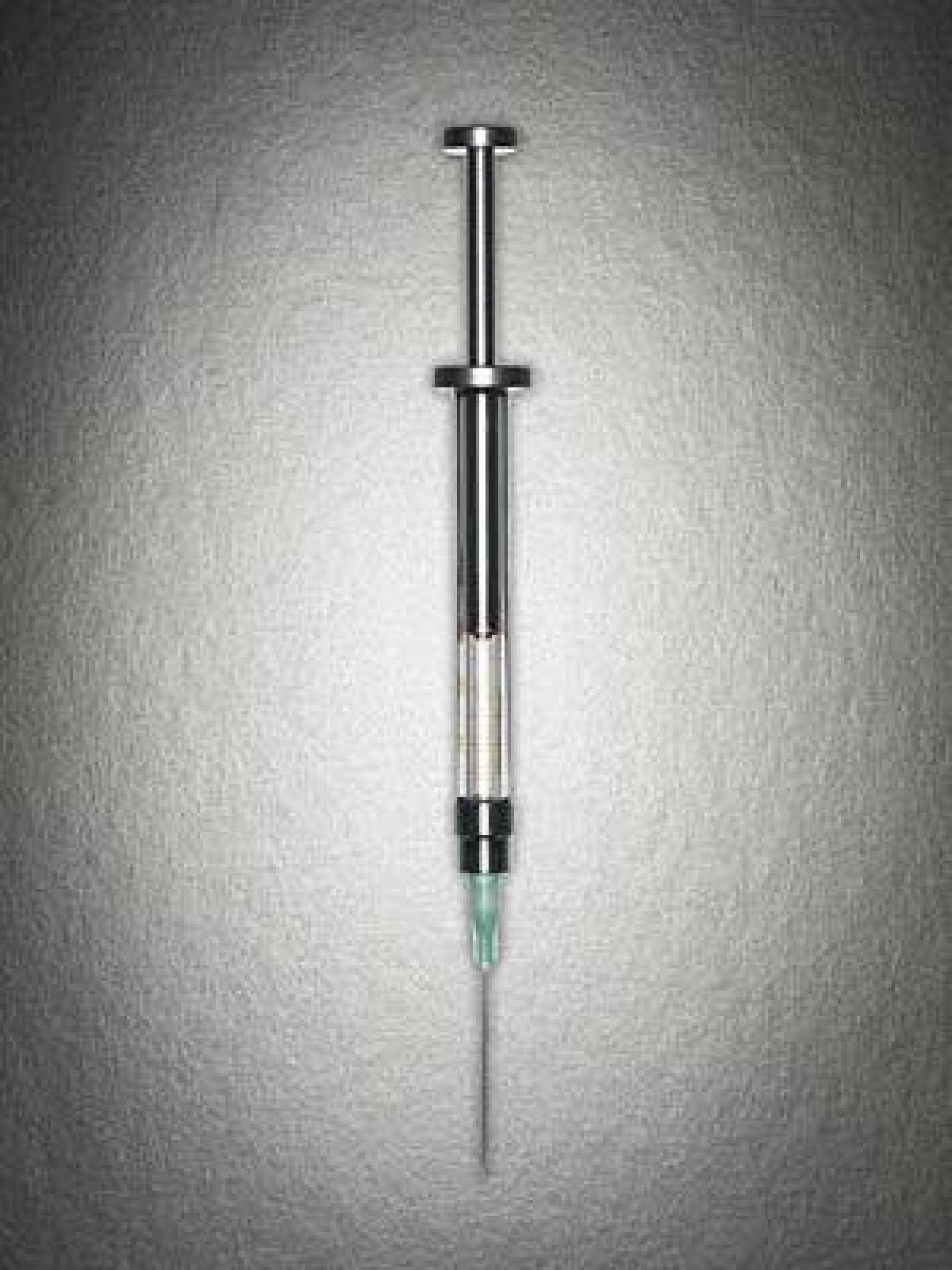A cancer cocktail’s edge

Even if a vaccine produces an appropriate cancer-attacking immune response, it still may not be enough to achieve clinical benefit, especially in patients with very advanced disease.
This could be because the ability of large tumors to suppress the patient’s immune system is stronger than the vaccine’s effect.
Or it could be because very sick patients may not have healthy enough immune systems to respond to the vaccine.
Now researchers are giving vaccines in combination with other drugs -- either to help boost the immune response or to help attack the cancer on multiple fronts. And they are more careful in selecting patients who might benefit from vaccine therapy.
For example, the new melanoma vaccine (which uses a fragment of a protein called gp100) is given in combination with the immune stimulant interleukin-2, which serves as a growth factor for immune cells, says Dr. Douglas Schwartzentruber, medical director at the Goshen Center for Cancer Care in Goshen, Ind., who presented the clinical trial results at last month’s conference.
“It causes the lymphocytes to multiply in large numbers,” Schwartzentruber says. “So you can specifically train this lymphocyte to recognize this cancer, and then you can multiply it with the interleukin-2.”
Interleukin-2 also happens to be an FDA-approved treatment for melanoma. With that drug alone, up to 15% of patients will see their tumors shrink. “That’s as good as anything out there, frankly, for metastatic melanoma,” Schwartzentruber says. Of the 185 patients in his clinical trial, 10% saw their tumors shrink with interleukin-2 alone and 22% saw the same with the combination of interleukin-2 plus vaccine.
With the new lymphoma vaccine, which also uses an immune stimulant to boost the response of immune cells, the results were more robust. In the latest trial, 117 patients who had received chemotherapy were followed for five years, on average. Those who received the vaccine -- made using a marker from patients’ own cancer cells -- were cancer-free for 44 months, on average. Those who didn’t get the vaccine were cancer free for 31 months.
The Provenge trial included 512 men who had advanced prostate cancer that was not responsive to hormone therapy, a standard treatment for prostate cancer. The vaccine differs from the others in that a patient’s own immune cells are removed, fitted with a marker for prostate cancer (called prostatic acid phosphatase or PAP), and injected back into the patient. Three-year survival rates were 31% for vaccinated subjects and 23% for control subjects.
Provenge is considered the vaccine closest to the finish line, but FDA approval is by no means a sure thing. Any number of concerns might arise with close scrutiny of the data, says Dr. Len Lichtenfeld, deputy chief medical officer of the American Cancer Society in Atlanta. The FDA could find problems in the control group that muddy interpretation of the outcome or it might argue that effects on disease progression are as important as survival rates. Provenge has not been reported to slow progression of disease.
--



